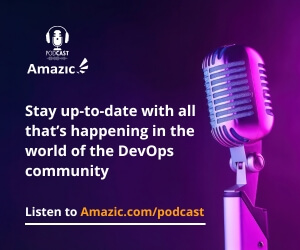DevOps teams have been ruthlessly automating processes for years but with the rise of machine learning algorithms it’s only a matter of time before artificial intelligence is applied to IT operations, otherwise known as AIOps. The issue heading into the New Year is determining what impact those platforms will have both near and long term on DevOps workflows and the overall management of IT.
AIOps platforms have been adopted with mixed success in the past year. Each IT environment is unique, so it takes a while for algorithms to learn how an IT environment operates. The AIOps platforms can surface more accurate optimization recommendations over time as algorithms learn. In many ways, it’s not much different than hiring a new employee that needs to be trained. The difference is this employee never gets sick, asks for a raise, or decides to up and quit one day.
However, there are challenges that limit the effectiveness of these platforms. The more dynamic an IT environment is that more challenging it becomes for machine learning algorithms to understand the relationship between platforms and applications. It’s probable at some point the artificial intelligence (AI) model might need to be retrained or replaced with one that has been better trained.
Regardless of approach, however, IT teams will need to make a fundamental choice. There is now no shortage of AIOps platforms that could be adopted, but many IT organizations already have management platforms in place that over time will be augmented by machine learning algorithms. The decision then becomes to what degree should IT teams adopt a new AIOps platform versus waiting for providers of existing IT management frameworks to infuse machine learning algorithms into those platforms.
Acquiring any new IT management platform is always going to be an expensive proposition. In addition to the cost of the platform there are always integration and training costs to be considered. The decision to adopt an AIOps platform is likely to be driven by how pressing the current IT management challenges are. There are no absolute guarantees any existing providers of an IT management platforms will be able to effectively embrace AI so in many cases deciding not to adopt a dedicated AIOps platform is an ultimate act of faith.
Ultimately, it’s only a matter of time before AIOps plays a larger role. Over time AI models will only get smarter so many rote IT tasks will increasingly become automated. IT organizations that still primarily rely on IT management frameworks running in on-premises IT environments might also need to make a choice. The more data used to train an AI model the more accurate it becomes. Consequently, a provider of an IT management framework consumed via a software-as-a-service (SaaS) platform benefits from all the anonymized data from multiple customers it collects to train their AI models. Organizations that deploy IT management frameworks in an on-premises IT environment have less data to train an AI model but it’s worth noting that advances in training AI models with less data are being regularly made. The issue is that not many IT organizations are going to be able to afford to hire a team of data scientists to create AI models for them.
In general, IT leaders should expect to see AI models applied initially to the management of IT infrastructure but it’s clear providers of DevOps platform used to build and deploy are moving down the same AI path. IT leaders should expect in the year ahead to see a wave of AI upgrades that are not so much intended to replace IT staff as much as they augment them. As IT environments become more complex there is a chronic need for additional DevOps expertise that is hard to find and retain. IT organizations will undoubtedly need to rely more on AI to fill a growing DevOps skills gap. There will even come a time soon when the best and DevOps brightest will decide they don’t want to work for organizations that don’t make use of AI to eliminate a lot of the IT drudgery that gets in the way of doing the best job possible. Organizations that invest in AIOps will have their pick among DevOps practitioners that, as a general rule, embrace advances in automation.
In fact, the IT leaders of tomorrow are more than likely going to be the individuals that are already at the forefront of combining AIOps with best DevOps practices today.
If you have questions related to this topic, feel free to book a meeting with one of our solutions experts, mail to sales@amazic.com.



